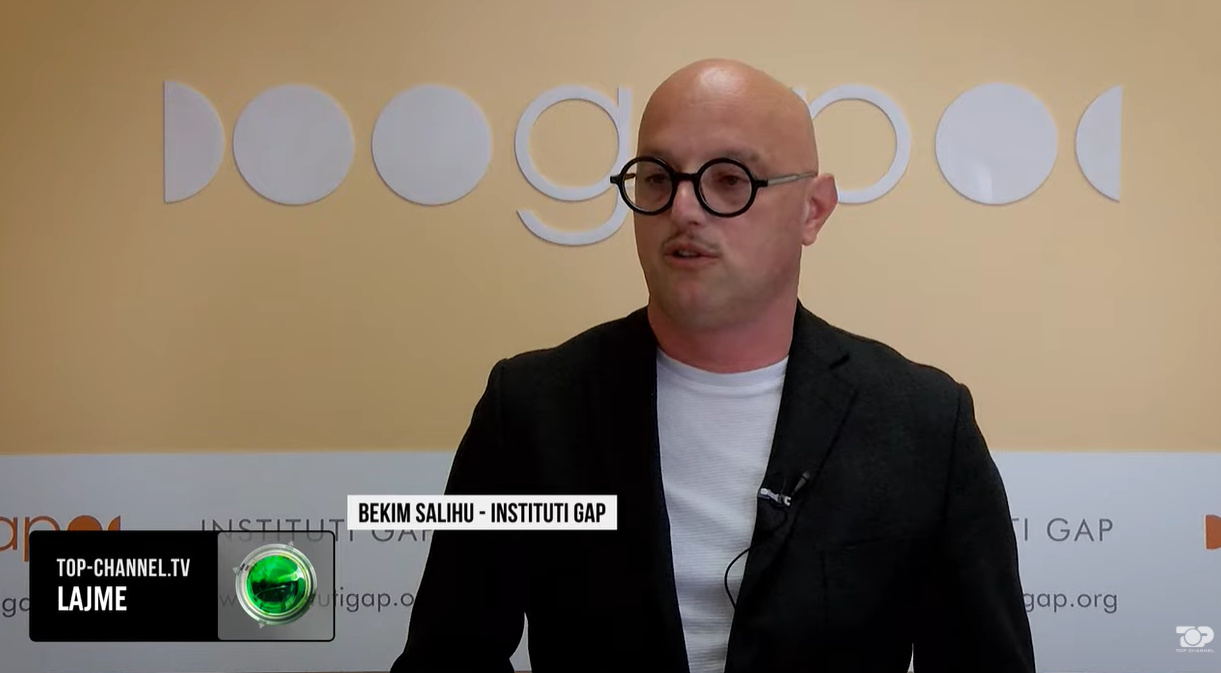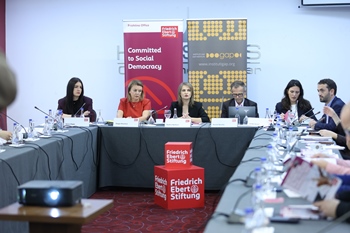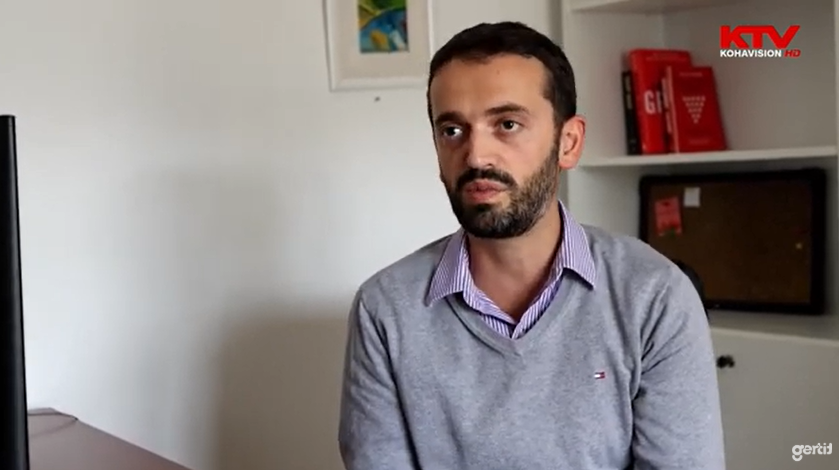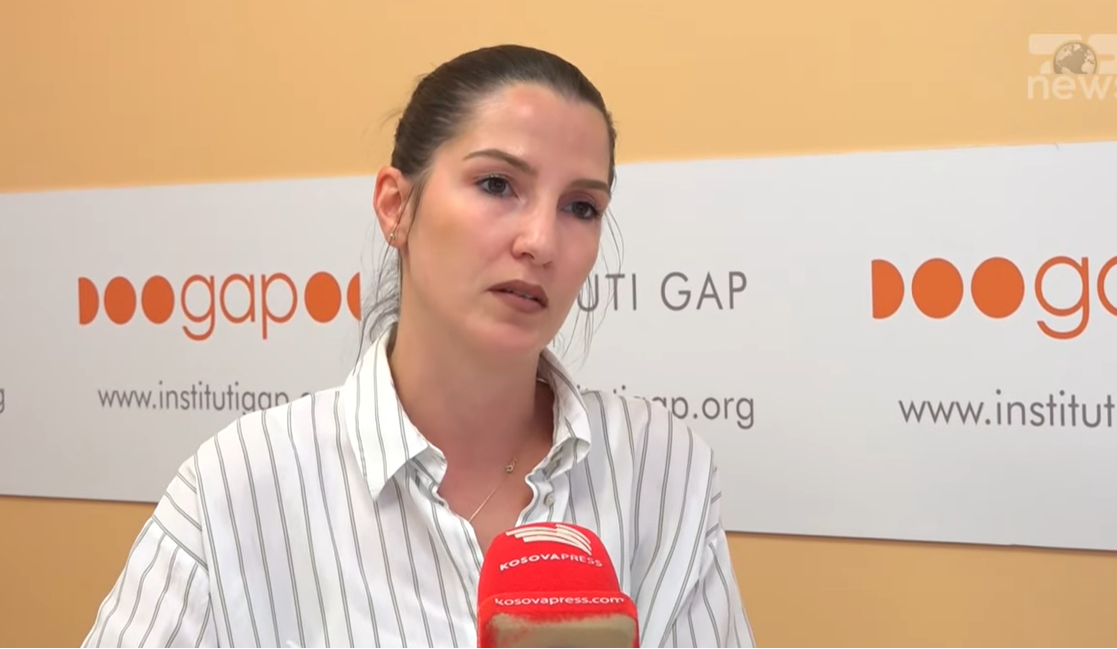GAP and BIRN Published Seven Reports on Problems of Prishtina Region
03/10/2013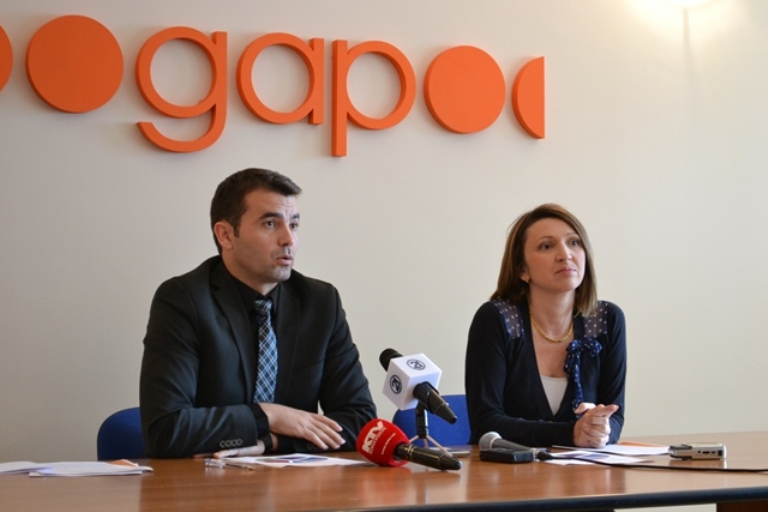
A few days before the official campaign period for 2013 local elections began, GAP Institute and BIRN finished publishing research reports on major infrastructure problems and governance issues which municipalities of Kosovo face.
On October 3rd, GAP and BIRN published the last seven reports on main problems and budget trends that Prishtina, Drenas, Fushë Kosove, Lipjan, Gracanica, Obiliq and Podujevo municipalities face.
Agron Demi, executive director of GAP, presented the findings of the reports, focusing on main problems that GAP has identified during field research. According to research, the main concerns of Pristina’s residents are: registration of private property, urban transport, lack of drinking water, illegal construction and occupation of public spaces, lack of car parking spaces, lack of greenery and park spaces, pollution, lack of recreational sport areas, lack of public lighting.
Mr. Demi presented several problems of other municipalities as well in the region of Prishtina. Some major problems in these municipalities are: lack of water supply and drinking water in Podujevo and Gracanica municipality, air pollution in Obiliq and Fushë Kosovë, pollution of “Sitnica” river in Lipjan municipality, floods and pollution of the river “Drenica” in Drenas.
Mr. Demi also presented budget trends of these seven municipalities based on the Medium Term Budget Framework (MRBF) 2014 – 2016. By incorporating MRBF in the reports, GAP aims to inform citizens on the municipality’s budget capacity as well as the budget’s connection with the municipal capabilities for solving problems that citizens face.
Jeta Xharra, executive director of BIRN, unveiled BIRN plans for election debates with mayoral candidates, who will face specific questions on how to solve the problems identified by BIRN and GAP. Mrs.Xharra also invited all citizens to address their concerns through BIRN’s portal www.kallxo.com, so they can be discussed at municipal debates, which will be aired on “Life in Kosovo” in October.
These reports will be delivered personally to all the mayoral candidates in Kosovo.
During the conference some overall information was presented as well about main problems of Kosovo’s municipalities. The most common problems encountered in municipalities are lack of drinking water, a problem identified in 27 municipalities, waste management, identified in 24 municipalities, river beds, identified in 21 municipalities, and the lack of sanitation, identified in 20 municipalities.








